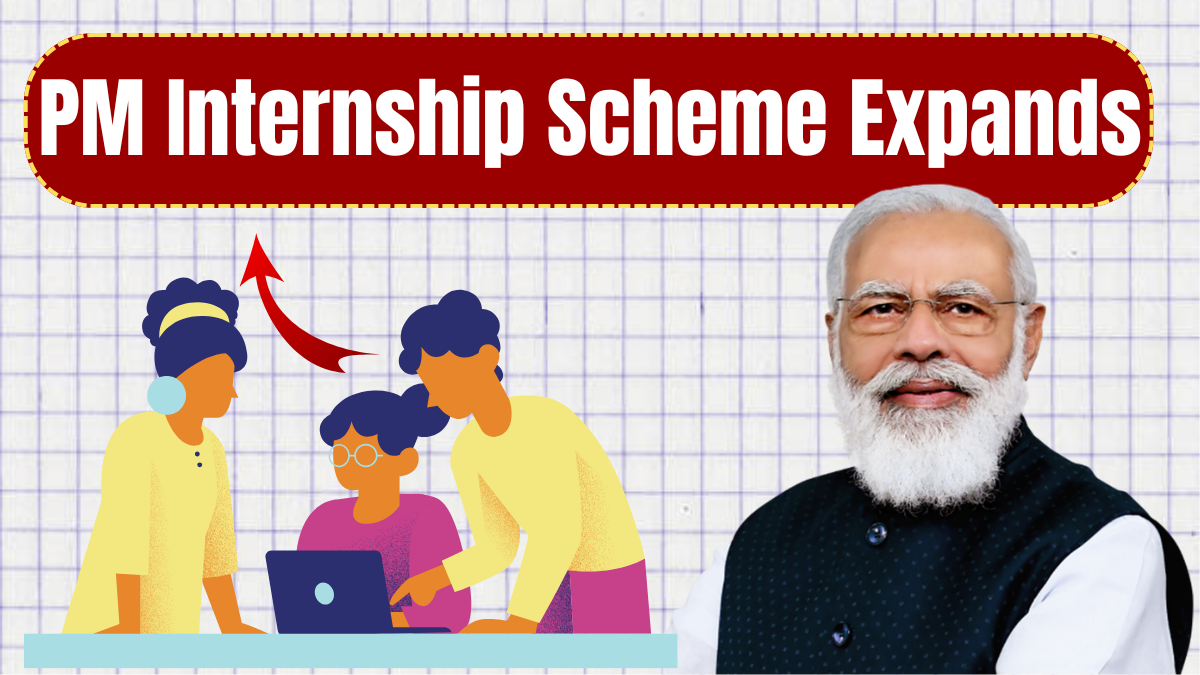The Prime Minister Internship Scheme (PMIS) is evolving into one of India’s most significant employment-bridging initiatives. Launched with a focus on youth empowerment, the scheme is not just providing practical experience but also pushing for greater gender equality in the workforce.
As of April 2025, the program is undergoing a massive expansion. However, data from its pilot phase shows a worrying gender gap—only 28% of participants were women, sparking nationwide discussions and action.

What Is the PM Internship Scheme?
The PMIS is a government-funded program aimed at fresh graduates. It provides structured internships across various sectors such as:
-
Corporate enterprises
-
Government departments
-
Non-profit organizations
Each intern is eligible for a monthly stipend of ₹5,000 along with a one-time grant of ₹6,000, totaling an annual financial support of ₹60,000.
A budget of ₹10,831 crore has been allocated, and the scheme aims to reach 1.5 million internships by FY26.
Gender Disparity in Participation: Key Issues
The pilot phase revealed a glaring imbalance:
-
Men accounted for 72% of interns
-
Women were just 28%, largely due to barriers like:
1. Limited Local Access:
Women often struggle to secure internships far from home due to cultural and logistical restrictions.
2. Housing and Safety Concerns:
The absence of safe and affordable lodging near internship sites has discouraged many from applying.
Government’s Strategy to Close the Gender Gap
To tackle the issue head-on, the following actions are being implemented:
-
Accommodation Support: Organizations are now working on providing housing specifically for women interns to ensure safety and convenience.
-
Awareness Drives: Dedicated campaigns aim to promote the scheme among women graduates in Tier 2 and Tier 3 cities.
-
Internships Closer to Home: New guidelines are being drafted to allow internship postings in or near candidates’ home districts, increasing access for women.
Looking Ahead: Fivefold Expansion by FY26
Currently supporting around 2.4 lakh interns, the scheme is preparing to scale up to 15 lakh internships within the next financial year. The plan includes:
-
Inclusion of ITI diploma holders and graduates
-
Expanded industry partnerships
-
Increased role of private sector internships
The scheme has already seen an expenditure of ₹50 crore during its early rollout phase, indicating rapid deployment and active investment.
Why the PMIS Matters
By offering financial support and real-world experience, PMIS is not only helping bridge the gap between education and employment but is also expected to enhance workforce diversity.
Improving women’s participation will directly strengthen gender balance in India’s job ecosystem, leading to long-term social and economic benefits.
FAQs
What is the monthly stipend under the PM Internship Scheme?
Interns receive ₹5,000 per month along with a one-time grant of ₹6,000 per year.
How many internships will be offered under PMIS by FY26?
The government aims to expand the scheme to 1.5 million internships by the end of FY26.
Why is there a gender gap in PMIS participation?
Cultural restrictions, lack of lodging, and distance from home districts are key reasons for low female participation.
What steps are being taken to address this gender disparity?
The scheme is adding housing provisions for women, promoting awareness, and encouraging internships closer to home.
Is the scheme limited to graduates?
No. ITI diploma holders and other eligible candidates are also included under the expanded scheme.
How does this scheme contribute to India’s economy?
By equipping youth with workplace exposure and empowering women, PMIS promotes job readiness and inclusive economic growth.
Click here to know more.
Aanchal is a passionate writer with a keen interest in storytelling, content creation, and creative expression. She enjoys exploring diverse topics and crafting engaging narratives that captivate readers.

